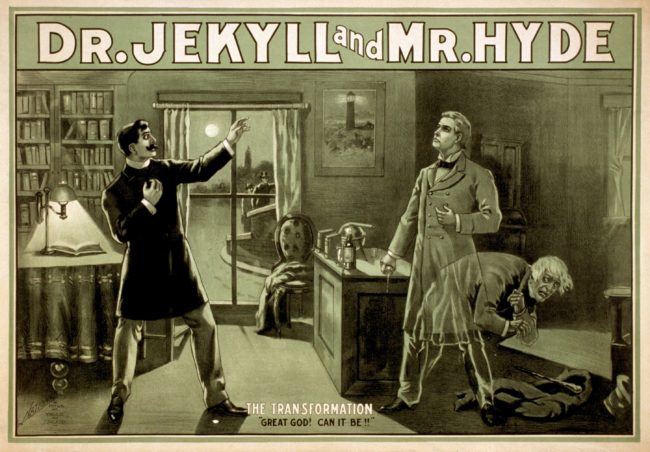07.05.17Complete the Exemplar-Maggie Johnson on Gabby’s Woolf’s Inspirational Lesson

Honestly, We Felt Transformed Too!
We’ve been thinking a lot about writing these days- nothing new there. But watching a lesson from King Solomon Academy’s Gabby Woolf really got our own Maggie Johnson reflecting. She shared this post.
This morning during our weekly Video Review Meeting, we watched a clip of our very own TLaC Fellow, and one of London’s brightest, Gabby Woolf. I loved it. In it, Gabby and her students are discussing Robert Louis Stevenson’s Dr. Jeykll and Mr. Hyde—in particular the provocative language Stevenson uses to sensationalize for a Victorian audience the gruesome murder of Sir Danvers Carew. [Did you just hear all the English teachers out there collectively swoon? Me too.]
But it’s not just the line of analysis she pursues with her students. It’s that she grounds this thoughtful discourse in writing—moreover, a very clever exercise designed to elevate her student’s sentence and paragraph-level writing during composition.
Gabby starts by projecting and reading aloud part of a masterful exemplar paragraph that she’s written herself. She shares her topic sentence and a few more sentences that describe and explicate Stevenson’s choice of Hyde’s murder weapon (a cane, wielded like a caveman’s club) and how it is a symbol in the text (signifying the devolution of Hyde into utter barbarism). Then she tasks students with continuing her paragraph, asking them to build their analysis around two more text citations.
I was struck by how much mileage Gabby got out of her exemplar. We commonly encourage teachers to draft exemplar answers in the course of preparing to teach a text. This ‘intellectual preparation’ is so important to make sure you know your text intimately, that your questions work as you envision, and so you know exactly what you are looking for in students’ writing. But Gabby’s exemplar serves an even greater purpose. She gives her students an entry point for developing a sophisticated line of analysis in writing, and on their own (no small task in and of itself), while implicitly setting the bar for their sentence complexity and attention to craft.
This paragraph completion task, as my colleague Joaquin noted, is a practical application of Cognitive Load Theory for literacy classrooms. Had Gabby asked students to first read and internalize a completed exemplar and then apply what they learned to a paragraph entirely of their own design, she might have over-saturated their working memory and prevented some learners from engaging successfully in the task. But instead, she enjoys the benefits of providing students an exemplar paragraph that they must study and expound on, while balancing the cognitive demand.
Even more powerful—to me at least— is that the writing task reinforces the rich content of Gabby’s English class. Writing, and the deliberate practice of it, is indelible in students’ analytical discourse, and vice versa. Even something as seemingly elementary as grammar practice can be seen as a powerful tool for building background knowledge (the importance of which is unequivocal). I find this potential astounding.
Gabby concludes this exercise by asking to complete the paragraph with a final sentence capturing ‘the effect Stevenson may have wanted to create for the Victorian reader and the mood toward crime in London during the time.’ My colleague John and I loved how she used both explicit and implicit sentence parameters: explicit (answer the specific question I’ve posed) and implicit (be sure it completes the paragraph successfully). We wondered: “Is there a fourth type of Art of the Sentence prompt that Gabby is using here? An embedded prompt that explicitly asked students to complete or continue an exemplar?” There were all kinds of possibilities- e.g. “Match the style and wrap up the argument with an allusion to the club,” etc.
John’s writing about it separately but as for me, watching Gabby’s lesson has one very-rusty former English teacher (me) itching to get back into the classroom to try it out. For now, I’ll have to settle for grand tales of your experiences as you trail blaze alongside Gabby Woolf.
